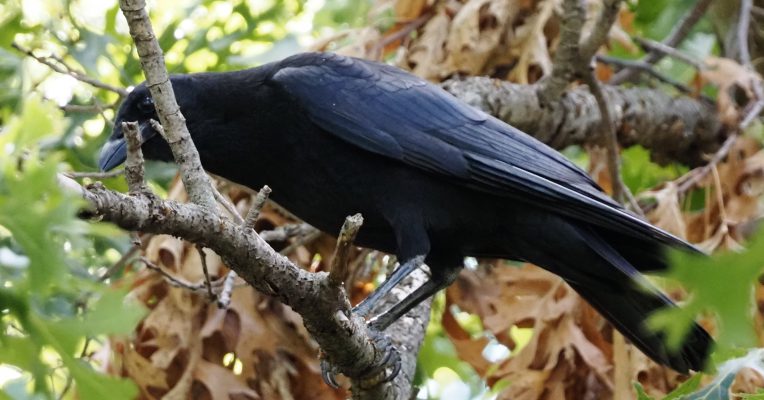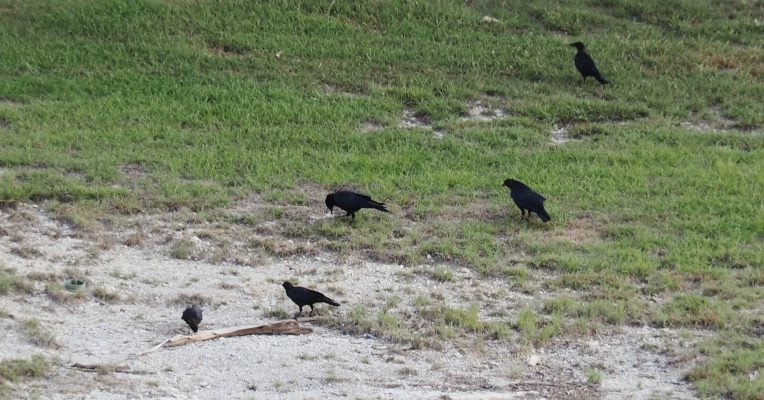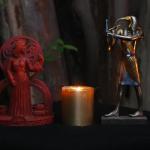Today we have four questions: on worship, practice, spirits from pop culture, and comparing different Pagan traditions.
What is worship and why should we do it?
What is “worship” from a Pagan perspective, and is it necessary for a Pagan to worship a deity?
To address the second question first, “Pagan” is a very broad term. It includes some people who are non-theists, and others who are theists but for whatever reason do not worship any Gods. Those people are still Pagans. So no, it is not necessary for Pagans to worship a deity.
But many Pagans do. More relevantly to this question, many Pagans who don’t worship the Gods refrain from worship because of a misunderstanding about what worship is. That’s what I’d like to address here.
Many people – and not just Pagans – have the idea that worship is about self-debasement, about proclaiming the majesty and greatness of some deity and the worthlessness of the worshipper and of humans in general. This is wrong from a Christian perspective and very wrong from a Pagan one.
Our word “worship” comes from the Old English weorthscipe meaning “worthiness” and “an acknowledgment of worth.” To worship someone (or some thing) is to declare that they are worthy. We need not and should not declare ourselves unworthy to acknowledge that our Gods are worthy.
So to worship – in any religious tradition – is to say “this is worthy of our honor, our respect, and our devotion.”
Worship can take many forms. It can be elaborate rituals with offerings and hymns of praise. It can be quiet prayers and devotions. It can be acts of service dedicated to a deity and to Their virtues. Anything that proclaims “our Gods are worthy” is worship.
Worship requires reverence, an attitude of respect and awe. It doesn’t have to be serious and somber all the time, as those of us who worship Gods of the Wild will attest. But it needs a core of respect, not for the form of worship but for the person being worshipped. Without that respect and awe we’re just playing. And while there’s nothing wrong with play (it’s good and necessary, for adults as well as for children) it’s not worship.
My favorite quote from Ralph Waldo Emerson says: “a person will worship something … That which dominates will determine their life and character. Therefore it behooves us to be careful what we worship, for what we are worshipping we are becoming.”
When we worship the Gods we become more God-like. And that’s a very good thing.
When you can’t practice “by the book”
I am reaching out to Hecate and Frigg. The resources I am using all talk about elaborate rituals and the use of candles and incense. We have pet birds that that get flight time – candles will be dangerous, and incense is deadly for them. Is there an alternative? Also our house is chaotic at the best of times. I am trying to just pray to them, talk to them, and my very poor attempt to meditate (I have ADHD). Any suggestions?
I love high ritual. I love rituals that are based on the worship and celebrations of our ancient ancestors. But this is one way, not the only way.
Individual traditions (both ancient and contemporary) have their own protocols that must be observed. But the Gods are not bound by human practices. In my experience, when you approach most any deity with respect and with a genuine desire for a reciprocal relationship, They respond positively.
So, yes, just pray. Just talk to Them. Listen for Their responses. Meditation works well for this, but so does ending your prayers with a few moments of silent attention. Make offerings. If you can’t leave them on your indoor altar, pour (or burn, or bury) them outside. Read and study, both what we have from ancient times and what we have from contemporary practitioners.
If in doubt, ask. Ask your question in prayer and listen for an answer. Or ask in divination. Or just pay attention. Over time, you’ll learn which forms of practice are most helpful in building and maintaining a relationship with the deities who call to you, or who you seek out.
Spirits from pop culture
Alanna Blackwood asked:
What are your thoughts on pop culture deities/spirits/entities? Fictional and non-fictional characters/celebrities apply.
And then Rowen Grove added:
What of folk who sincerely believe they have encountered an entity generally considered as fictional – say, Aragorn, or Qui Gon Jinn from Star Wars? I think such encounters are usually dismissed, but what if there is something to it? And if the individual in question is not only an egregore (thought form) but something on which, perhaps, the author picked up?
My thoughts on any sort of religious practice based on pop culture are generally unfavorable. People have a real, legitimate religious experience, but because they’re ignorant of traditional religious understandings of such experiences, they interpret them in the context of some novel or TV show or movie that they’re more familiar with.
But my standard practice is to take anyone’s religious experience at face value. So if someone tells me they encountered Aragorn or Qui Gon Jinn, I’m not going to tell them they’re making it all up. I’m also not going to waste my time with people who obviously are making it all up, either because they really want it to be true or because they’re being a troll. But that’s another topic for another time.
Perhaps, as Rowen mentioned, what these people encounter is an egregore: a thought-form, a spirit that arises from the thoughts and actions of multiple people. For at least as long as people have been talking about egregores, they’ve questioned whether they’re sentient beings or simply organized energies. I don’t have a enough first-hand experience to form a strong opinion – my best guess is mostly the second but occasionally the first.
Rowan also mentions “something on which the author picked up.” Anyone who’s ever written fiction knows that characters can take on a life of their own – I’ve seen some authors describe their writing process as “watching what they do and then writing it down.” Attempts to force characters to do something they don’t want to do often doesn’t end well. Not every time with every author – many are simply the imaginings of the writer. But some characters appear to be spirits who existed before the author ever started writing.
Writers have been using Gods as fictional characters for centuries, sometimes in-character and sometimes in ways best described as appropriation. Are real deities behind those characters? Sometimes I think They are, using fiction to remind people that They’re still here, and still able and willing to enter into divine relationships with people. The fictional character is an aspect of the non-fictional God.
And let’s not forget that some spirits pretend to be someone they’re not, either because they’re trying to manipulate a gullible human or because they’re tricksters and that’s just what they do.
So yes, people do occasionally encounter spirits that at least appear to be characters from pop culture and other fictional sources. There are many things those spirits could be.
As for me, I prefer to direct my thoughts (and especially my devotions) to more traditional Gods and spirits. But at times I’ve been inspired by fictional characters in ways that greatly exceed what you’d expect from someone’s imagination. I’m not going to worship them, but I am going to pay attention.
Comparing and contrasting Pagan traditions and seeking the right tradition for you
How does eclectic Paganism differ from more traditionalist paths such as Wicca, Heathenry, Druidry, etc., and from reconstructionist traditions.
This question is difficult to answer for numerous reasons.
Let me start by saying I respect the question and the questioner. It comes from a place of genuine curiosity, and – as best I can tell – from an attitude of seeking. Most of us were there at one point – we owe it to those who come after us to be as helpful as we can.
But Pagan traditions are notoriously difficult to classify and categorize. Wicca is witchcraft in the tradition of Gerald Gardner. But it’s also witchcraft in the tradition of Raymond Buckland and Scott Cunningham, and witchcraft in the tradition of Jason Mankey and Thorn Mooney (who are both Gardnerian Wiccans, but whose writing and teaching is more than Gardnerian).
There have been Druid orders in operation for close to 300 years. But the Western-Mystery-Tradition-through-a-Celtic-lens spirituality taught by OBOD is very different from the Indo-European polytheist religion taught by ADF. I’m a Druid who’s a member of both orders – my Druidry is influenced by both, and it’s also its own thing.
And remember: when it comes to how we see the world, most everyone inside the Big Tent of Paganism has more in common with each other than we do with the Christian monotheists who still dominate Western culture.
The basics of any modern Pagan tradition can be found in a 101 level book. After that, what you experience with any author, teacher, or group is going to vary, sometimes a little and sometimes a lot.
So to answer the question in the seeking spirit in which it was asked, my suggestion is to read one or two books in the traditions that interest you. See what seems to fit with you and what doesn’t. Then pick one and try it on. Practice it diligently, look for a group, see if it works for you. There is no one right way and there is no one best way. There is only the way that works for you.
Good luck on your journey.



















